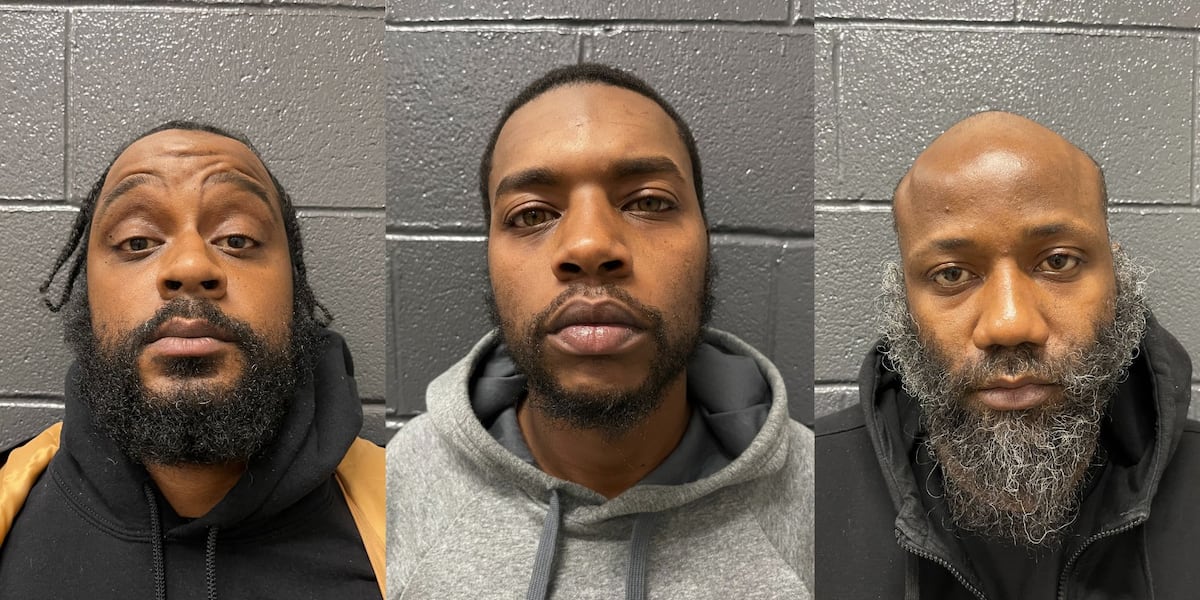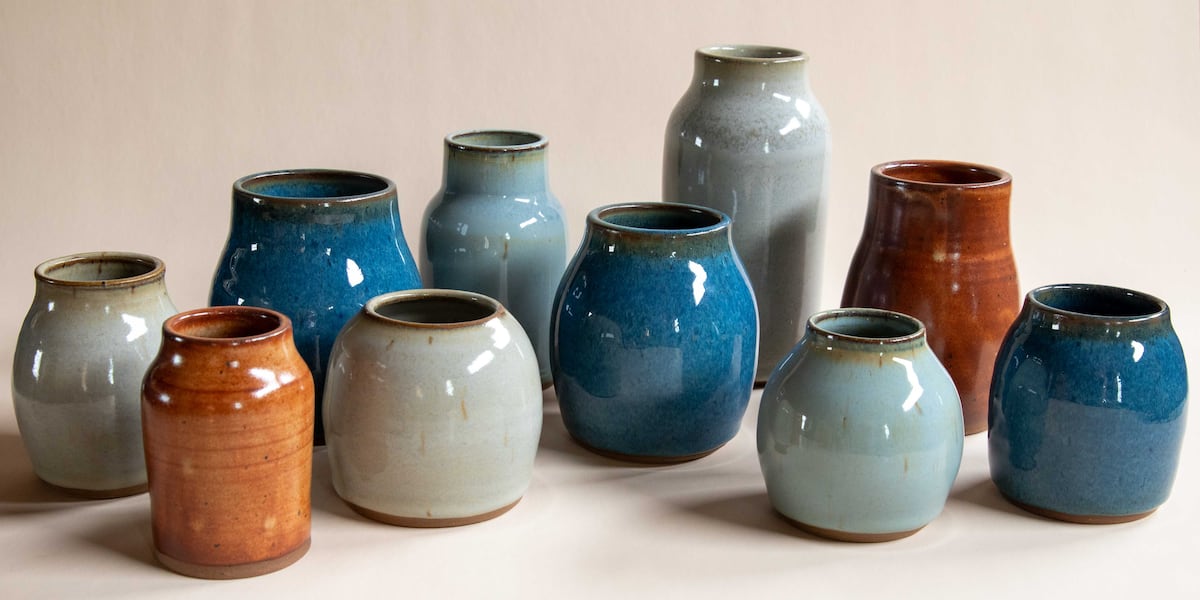Vermont
Stuck in Vermont: Two months after the flood, Kitty Korner Café in Barre is coming back
/cloudfront-us-east-1.images.arcpublishing.com/gray/VLKPEUEYSVHI3EA2KAJ7W3LDNA.jpg)
BURLINGTON, Vt. (WCAX) – Alexis Dexter started Kitty Korner Café in 2020, Vermont’s first — and only — kitty café.
Cats are transported from the southern U.S., and more than 750 have been adopted since the café opened. There were 57 rescue cats in the lounge on Monday, July 10, when it began to rain hard across the state. Unprecedented flooding followed as downtown Barre was deluged.
Seven Days’ Eva Sollberger filmed an episode about the café in 2021 and visited Dexter again on a recent Saturday afternoon to see how they are recovering from the flooding.
Related Stories:
Barre cat café tries to land on its feet after flooding
First cat cafe for Vermont is now closer to becoming reality
Barre business owner hopes to open state’s first cat cafe
Copyright 2023 WCAX. All rights reserved.

Vermont
Multiple men arrested after Anchorage Inn drug bust

SOUTH BURLINGTON, Vt. (WCAX) – Three men are in police custody following a months-long Vermont Drug Task Force investigation.
Police conducted search warrants at the Anchorage Inn in South Burlington following the investigation into the distribution of fentanyl and cocaine in the Chittenden County area. The investigation consisted of several controlled purchases of illegal drugs and resulted in the seizure of fentanyl and cocaine base.
34-year-old Michael Rainey of Bensalem, Pennsylvania was charged with fentanyl trafficking and cocaine possession. 33-year-old Kenneth Wright of Philadelphia was charged with fentanyl trafficking and sale of cocaine. And 36-year-old Rajib Ingram of Philadelphia was charged with two counts of cocaine sale and fentanyl trafficking.
Copyright 2024 WCAX. All rights reserved.
Vermont
Vermont Conversation: Million meter man Noah Dines on his record-setting year of living strenuously – VTDigger

The Vermont Conversation with David Goodman is a VTDigger podcast that features in-depth interviews on local and national issues with politicians, activists, artists, changemakers and citizens who are making a difference. Listen below, and subscribe on Apple Podcasts, Google Podcasts or Spotify to hear more.
For Noah Dines, life has been an uphill climb. And that is his dream come true.

Dines, a 30 year-old Stowe local, is in the process of setting a new world record for human powered vertical feet skied in one year. The previous record had been 2.5 million feet set in 2016 by Aaron Rice, another Stowe skier. Dines broke Rice’s record in September, then surpassed his original goal of skiing 3 million feet in October, broke 1 million meters — or 3.3 million feet — in early December, and will wrap up the year having skied 3.5 million feet.
Uphill skiing is known as skinning, so named for the strips of material that attach to the bottom of skis that enable skiers to glide uphill without slipping backwards. They used to be made from seal skins, hence the name skinning. Skinning up ski area trails has become a popular form of exercise in recent years, and backcountry skiers also use skins to travel where there are no lifts.

Dines began his uphill skiing quest on New Years Day 2024 just after midnight. He turned on his headlamp, snapped on his lightweight alpine touring skis and quietly skied off into the night up the trails of Stowe Mountain Resort. He has spent this year chasing snow around the world, from Vermont, to Oregon, Colorado, Europe and Chile. He has skied all but about 30 days this year. A typical day has him skiing uphill about 10,000 feet. At Stowe, that means he skis at least five round trip laps per day, often more. He will finish his quest at the end of this month and will be joined in his last days by his father, who has never skied uphill before.
I met up with Noah Dines on December 17 at the base lodge at Spruce Peak at SMR. It was raining, but Dines was still skiing.
“If you bail when it rains all the time, then you’re not getting everything you could,” he said.
Dines explained that his record quest has required “a lot of saying no” to everything from friends’ weddings to having a beer, from which he has abstained. “Your response to anything has to do with, how will this affect my big year?” he said.
READ MORE

Conceding that “the money has definitely been hard,” Dines has supported himself during his year of chasing snow through sponsorships from Fischer Skis, Maloja clothing and Plink electrolyte drinks. He also raised $10,000 through a GoFundMe and has drawn down his savings.
What has a year of living strenuously meant?
“Friendships. I’ve met so many incredible people. It’s meant learning how to persevere and work harder than I’ve ever worked before. It’s meant seeing beautiful sunsets in Chile. It’s meant cold mornings and crisp Alpine air. In Europe, it’s meant croissants on the side of a mountain. It’s meant more time with friends in Stowe.”
By pursuing a dream, Dines hopes that he can be a model for others. “I have a passion and I pursued it and I’ve pushed myself as hard as I can, and you can too,” he said. “It doesn’t have to be with sports or take a year, but there’s no reason that you can’t set goals and meet them, that you can’t push yourself just because you didn’t grow up doing it.”
What will the million meter man do to start 2025?
“Well first and foremost, I’ll take a little nap, at least for an afternoon.”
Vermont
Opinion — Rep. Mike Mrowicki: The spirit of cooperation for the 2025 legislative session

This commentary is by Mike Mrowicki, democratic state representative for the Windham-4 district.
As we head into the 2025 legislative session in January, I want to first offer congratulations to Gov. Scott, Jason Maalucci and the Republican campaign effort. They sure got it right about affordability.
Yes, property taxes / education funding are on people’s minds but the ongoing frustration about inflation/affordability also includes the price of eggs, the increase in health insurance cost and rising home insurance costs. Especially where there’s been flooding two years in a row.
So, Vermonters want action and there sure seems a broad sense of enthusiasm from legislators to come together and get the work done. To balance the competing needs of providing our kids a quality education and making it affordable. After all, the kids of today will be taking our blood pressure tomorrow and don’t we want them to be able to do it accurately, based on the quality education they got in Vermont?
At the same time, no one should feel that their taxes are a threat to staying in their homes. We need to make sure, especially for those on fixed incomes, that despite rising property values, property taxes should reflect ability to pay.
In the spirit of working together with the governor, then, I and other legislators are eagerly awaiting his ideas for fixing the property tax / ed funding dilemma. And, we are ready to hear what he has to say on the raft of other factors that challenge Vermonters’ sense of affordability.
Like the cost of health insurance. Blue Cross Blue Shield Vermont individual premiums will rise by 19.8% next year. There isn’t a budget this doesn’t affect: home budgets, town budgets, school budgets and state budgets. It’s a cost driver across the board and we’re looking forward to hearing the governor’s plan on how to make this more affordable.
Housing is unaffordable and, in many cases, unavailable, especially for our financially challenged neighbors. The lack of housing is the barrier to progress in so many sections of our landscape. It is the greatest barrier to growing our workforce and economy so, likewise, we’re looking forward to the governor’s plans on Housing.
The cost of transportation and maintaining our roads and bridges is also unaffordable. This is compounded by our gas taxes no longer providing sufficient funds to maintain our roads and bridges. Here’s another area where we’re waiting to hear the administration’s plan so we can work together to solve this.
And, of course, climate change is costing towns across Vermont unaffordable amounts to fix the damage from this year’s floods, and last year’s as well. Who knows what next year will bring, but these are costs that Vermont taxpayers are bearing right now and adding to the pile of issues that are making Vermont unaffordable. We’ll be looking forward to hearing from the governor and his administration how we make those climate costs affordable.
Legislators are ready to work together, as the 18-week session nears. To work together in the spirit of cooperation and keeping focused on how we can best help Vermonters.
As the late Mario Cuomo once said when he was governor of New York in the last century, “You campaign in poetry. You govern in prose.” A good way of saying the campaign is over, the hard work is ahead of us.
Vermonters work hard to make ends meet. We get that. Legislators will also be working hard to make sure Vermonters feel heard and see results. When we adjourn in May, here’s hoping the spirit of cooperation brings us to a better place for all the issues facing Vermont, so everyone’s hard work feels all the more worthwhile.
-

 Politics7 days ago
Politics7 days agoCanadian premier threatens to cut off energy imports to US if Trump imposes tariff on country
-
/cdn.vox-cdn.com/uploads/chorus_asset/file/25782636/247422_ChatGPT_anniversary_CVirginia.jpg)
/cdn.vox-cdn.com/uploads/chorus_asset/file/25782636/247422_ChatGPT_anniversary_CVirginia.jpg) Technology1 week ago
Technology1 week agoInside the launch — and future — of ChatGPT
-
/cdn.vox-cdn.com/uploads/chorus_asset/file/25789444/1258459915.jpg)
/cdn.vox-cdn.com/uploads/chorus_asset/file/25789444/1258459915.jpg) Technology6 days ago
Technology6 days agoOpenAI cofounder Ilya Sutskever says the way AI is built is about to change
-

 Politics6 days ago
Politics6 days agoU.S. Supreme Court will decide if oil industry may sue to block California's zero-emissions goal
-
/cdn.vox-cdn.com/uploads/chorus_asset/file/25546252/STK169_Mark_Zuckerburg_CVIRGINIA_D.jpg)
/cdn.vox-cdn.com/uploads/chorus_asset/file/25546252/STK169_Mark_Zuckerburg_CVIRGINIA_D.jpg) Technology6 days ago
Technology6 days agoMeta asks the US government to block OpenAI’s switch to a for-profit
-

 Politics1 week ago
Politics1 week agoConservative group debuts major ad buy in key senators' states as 'soft appeal' for Hegseth, Gabbard, Patel
-

 Business5 days ago
Business5 days agoFreddie Freeman's World Series walk-off grand slam baseball sells at auction for $1.56 million
-
/cdn.vox-cdn.com/uploads/chorus_asset/file/23951353/STK043_VRG_Illo_N_Barclay_3_Meta.jpg)
/cdn.vox-cdn.com/uploads/chorus_asset/file/23951353/STK043_VRG_Illo_N_Barclay_3_Meta.jpg) Technology5 days ago
Technology5 days agoMeta’s Instagram boss: who posted something matters more in the AI age






/cdn.vox-cdn.com/uploads/chorus_asset/file/25472452/STK270_GOOGLE_MAPS_B.png)










